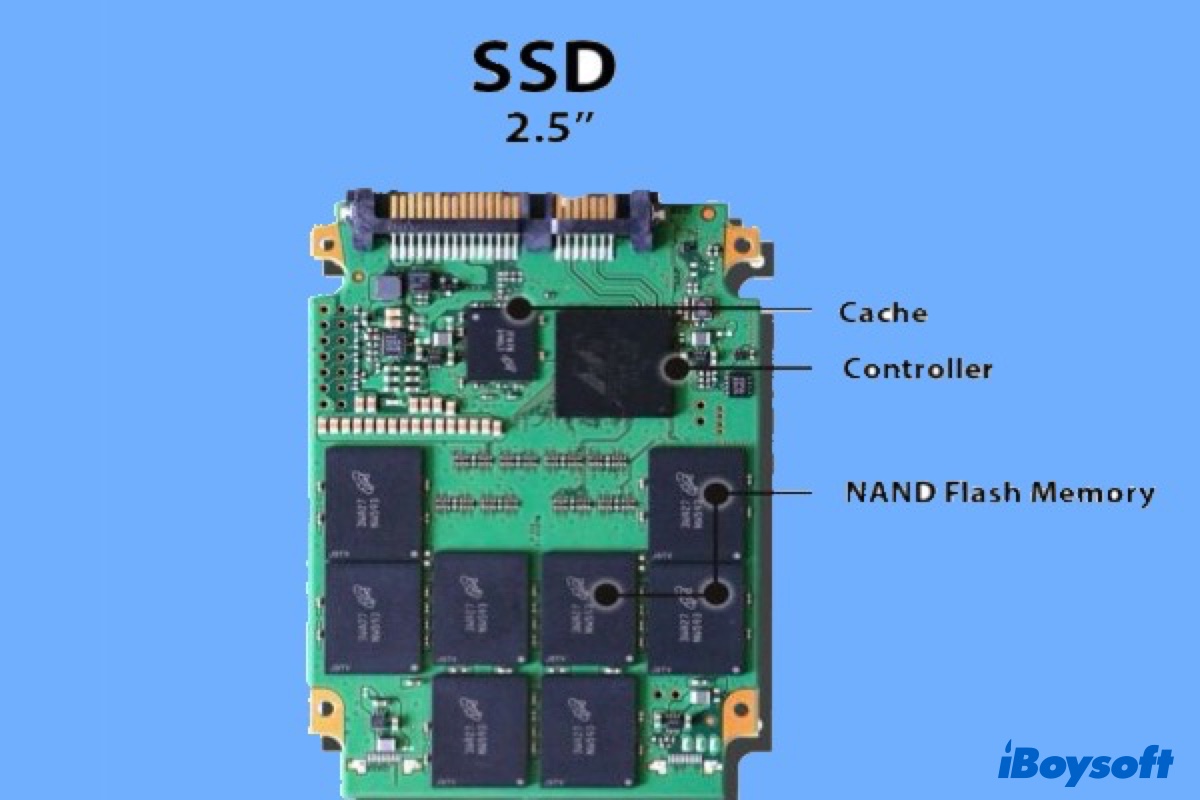Nowadays, SSD drives have largely replaced traditional hard disk drives because of their fast access speed. Are you ready to upgrade your laptop hardware with an SSD?
What you want to know about SSD drives is almost covered in this passage, including SSD definition, SSD vs. HDD, and common frequently asked questions about solid-state drives. Just keep reading.
What is an SSD
An SSD, known as a solid-state drive, is a storage device with non-volatile memory. SSD drive is made of solid-state electronic memory chips and uses the NAND flash memory as the permanent storage medium to store data.
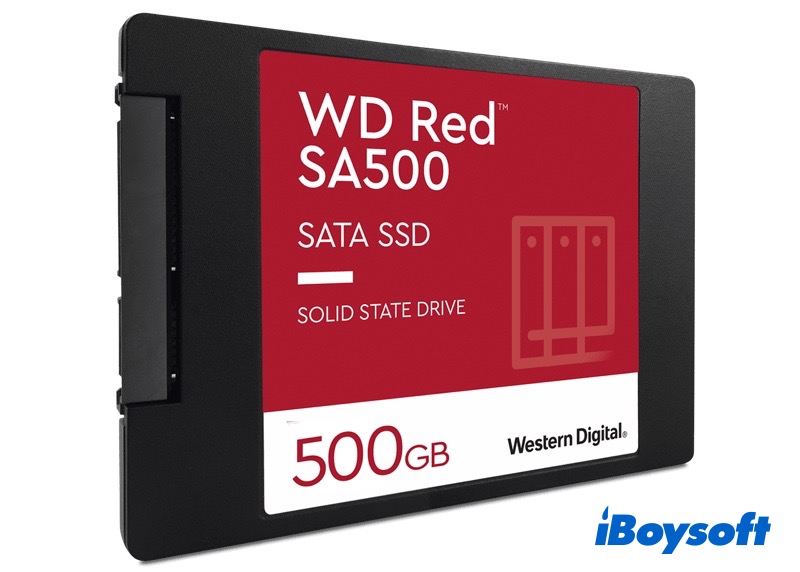
Source: WesternDigital.com
Types of SSD
SATA SSD and NVMe SSD are the main drive types. SATA drive is the lowest grade SSD and uses the same interface as hard drives. NVMe drive uses the non-volatile memory express (NVMe) interface specification for higher performance in data storage. Though NVMe SSD works faster than SATA SSD, it's pricier.
Form factors of SSD
Various form factors are provided by solid-state drive manufacturers. A 2.5-inch SSD drive is the most common form factor and it is available in multiple heights and supports SAS, SATA, and NVMe interfaces. Besides, an M.2 SSD is a new form factor that supports SATA, NVMe, and AHCI protocols.
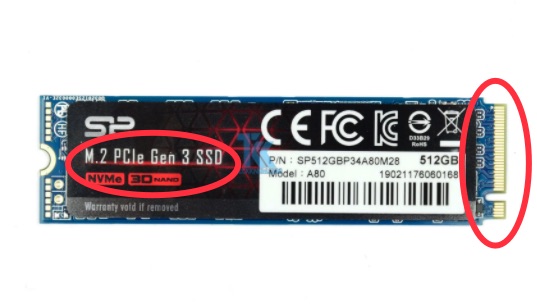
Capacity of SSD
Up to 2021, common consumer SSD storage capacities are: 128GB, 256GB, 512GB, 1TB and 2TB. The 4TB or 8TB storage capacity can be found in high-end computers, such as the Apple Mac Pro.
SSD vs. HDD: Which is better
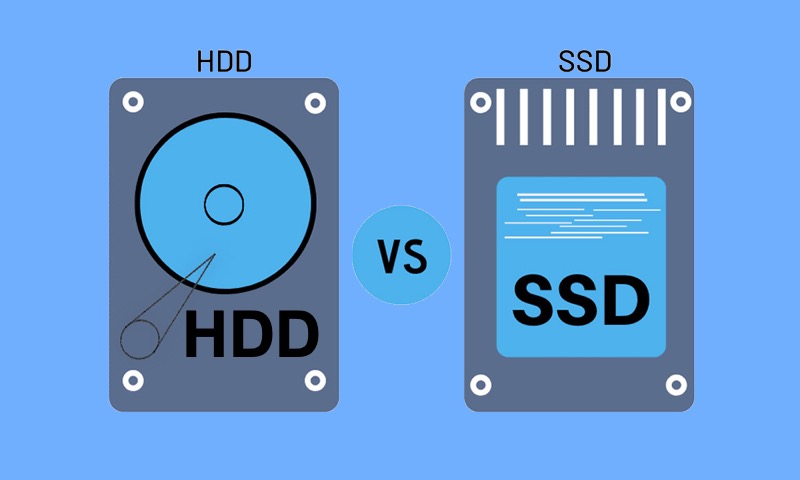
Unlike SSD, hard disk drives are electro-mechanical data storage devices. HDDs are made up of magnetized platters that rotate rapidly. The faster the magnetic disk spins, the quicker your computer can access information from it.
Generally speaking, SSD drives are much faster, lighter, more durable, and they use less energy while HDDs are cheaper and you can get more storage space. Though the price of SSD drives is coming down, it's still hard to say whether the solid-state drives will finally replace traditional HDDs in the storage devices market.
Want to know more about SSD vs. HDD or another drive type SSHD, read them for more information.
What is SSD used for
SSD drives work alongside your system's memory and processor to access and use data. Solid-state drives use NAND flash memory technology to let SSDs access data faster and improve your computer's performance.
On the other hand, solid-state drives can work as your external storage devices. External storage is an easy and portable way to store all your files. You can use SSD drives to backup your important files as a precaution against data loss.
Pros and Cons of SSD
Advantages of SSD
- SSDs have a fast speed of read-write due to the SSD TRIM command, which means they can access large files quickly.
- Solid-state drives are more shock-resistant and less likely to be physically broken because they do not have moving parts.
- SSD drives are energy-efficient and consume less power.
- SSDs operate with less audible noise because there are no moving or rotating parts.
- Solid-state drives are small and lightweight compared with HDDs.
Disadvantages of SSD
- SSD drives are more expensive than traditional hard drives.
- SSDs have a shorter lifespan than HDDs. The cells of solid-state drives can only be written a specified number of times while HDDs have a theoretically infinite read-write capability as the mechanics inside are functioning properly.
- The limitation of the number of write cycles will cause the performance of the SSD to degrade over time.
- It is impossible to recover deleted files on the SSD drives for which the TRIM command is enabled.
Which SSD is good for a laptop
When you want to upgrade your laptop with a new SSD drive, purchasing an SSD will annoy you so much. At present, the main SSD manufacturers include:
- Samsung
- Crucial
- Intel
- Kingston Technology
- Western Digital Corp.
- Seagate Technology
- SanDisk
- Micron Technology Inc.
- SK Hynix
Before you shop a solid-state drive, you should consider these factors first: your budget, your requirements for durability, form factor, interface, etc. As for me, I'd like to recommend Samsung SSDs in a handful of brands. Especially Samsung 860 EVO is known as the best overall SSD for most people. It's fast and competitively priced. In addition, it will work with just about every laptop on the market.
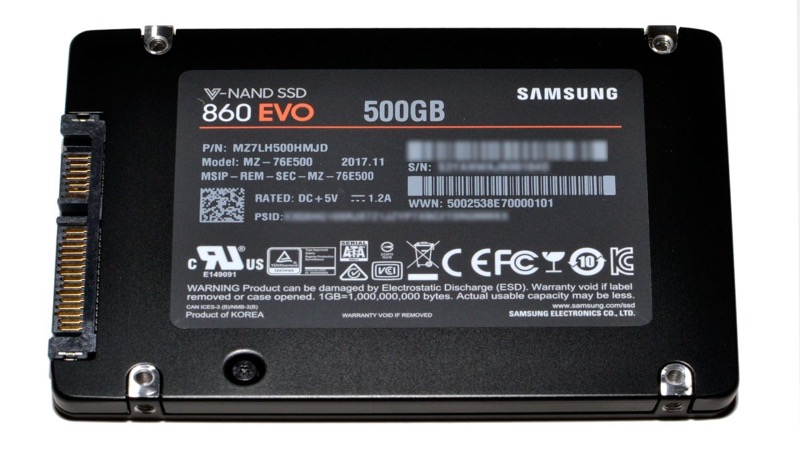
Source: Samsung.com
Related posts:
